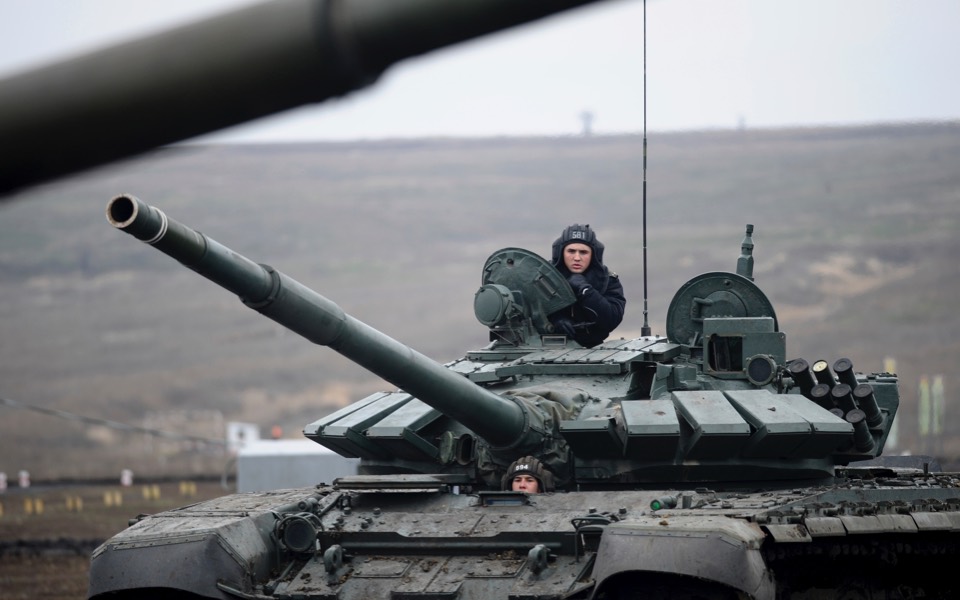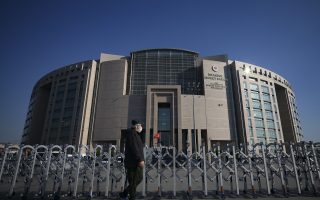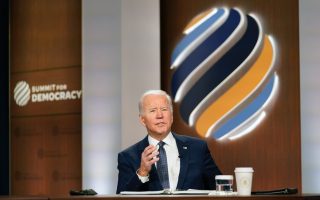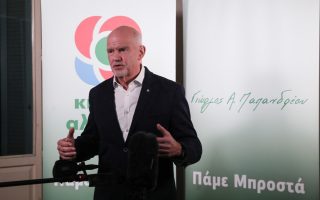No one wants war in Ukraine, but caution is critical

Russia has moved nearly 100,000 soldiers into position near its border with Ukraine over the past several weeks. If that weren’t ominous enough, Ukraine’s President Volodymyr Zelensky has said his security services have uncovered evidence of a Russia-backed coup plot against his government. He has also said a prominent Russian oligarch is involved in that plot, raising the stakes in his ongoing struggle with some of Ukraine’s wealthiest men, a few of whom are believed to have close ties with Moscow.
As Russia flexes its muscles, Ukraine is looking west for help. US Secretary of State Antony Blinken has met with Russian Foreign Minister Sergei Lavrov to warn him that Russian aggression against Ukraine would come with “serious consequences.” A US intelligence report claims Russia could be preparing a full invasion, and President Joe Biden is speaking to President Vladimir Putin via Zoom. To reinforce its warnings, the US has reportedly sent 80 tons of ammunition to Ukraine. European officials have expressed similarly grave concerns. EU chief Ursula von der Leyen warns of new sanctions on Russia. NATO is on high alert. Russia blames all these tensions on Ukraine’s government, which Kremlin officials say is making threatening moves of its own.
What’s happening here?
As he and his presidency have gotten older, Putin appears to be relying more heavily than ever on reflexes developed during the Cold War. Perhaps he calculates that anti-Western threats can boost his popularity. (An October poll from Moscow’s Levada Center found that Russian public trust in Putin had fallen to 53%, its lowest level in nearly a decade.) That is not an unreasonable political strategy. The sharpest-ever surge in his approval numbers followed Russian’s 2014 invasion of Crimea. A growing number of Russians may be growing tired of Putin’s leadership, but faced with Western threats, they will back him as the embodiment of Russian strength and power.
Or maybe Putin feels that both Ukraine and NATO are being recklessly aggressive near Russia’s borders. Zelensky’s war on Kremlin-backed Ukrainian oligarchs undermines Russian influence in Ukraine’s capital, and Putin may well be warning him not to try to boost his own popularity with aggression near the Donbas region, where Russian-backed Ukrainian separatists have established a military stalemate against Kyiv.
He has said Russia’s recent troop surge is a direct response not only to provocations from Kyiv but also to unannounced NATO naval exercises in the Black Sea not far from Crimea. The Kremlin is also angry over Ukraine’s recent use of drones in that region provided by NATO member Turkey. Perhaps Putin is emboldened to act by rising oil prices that have buoyed Russia’s economy, the progress of the Nord Stream pipeline from Russia to Europe, and the departure of longtime Putin foil Angela Merkel from the German Chancellery.
Yet, despite all the posturing, warnings and frightening headlines, Russia is highly unlikely to launch a war by invading Ukraine. Putin’s invasion of Crimea seven years ago, a response to the political upheaval in Kyiv that forced Ukraine’s pro-Russian president to flee the country, benefited greatly from the element of surprise, an advantage that Putin’s government will never have again. In addition, Crimea was the only part of Ukraine where a majority of citizens were ethnic Russians, guaranteeing a friendly reception. Ukraine’s Donbas, which borders Russia, also includes a large population of ethnic Russians.
There is no remaining territory inside Ukraine where Russian soldiers will be greeted as liberators, and the frozen conflict that pits these two countries against one another has permanently set tens of millions of Ukrainians against Putin and Moscow. As a result, any Russian push to grab new territory inside Ukraine would trigger a war that Russia would win, particularly since NATO won’t directly intervene, but at a prohibitive cost in Russian lives and money. Add the cost of long-term occupation of lands populated by people who are irreconcilably hostile to Russian forces. Russia’s rusting economy can’t afford the open-ended expense or the harsh US and European sanctions that would surely follow.
Despite all that, Ukraine, Europe and the Biden administration cannot afford to become complacent. They must continue to signal that they are on high alert, and that any hostile Russian action will provoke a forcible response. There is a worrisome Cold War logic here. As much as Kyiv and Western governments fear Russian action that draws them into a costly conflict, so Putin’s government continues to view Ukraine’s future as the central question of Russia’s foreign policy. Just as Washington is hyper-vigilant against efforts by other countries to acquire nuclear weapons, so Moscow fears the entrance of any more of its neighbors into military or political alliances with Europe and America. What’s true for other Russian neighbors is especially true for Ukraine, a land central to the Russian idea of empire for the past thousand years.
The result of this reflexive reciprocal fear is that threats can become self-fulfilling, creating a conflict no one wants. For now, war remains distant. But no one will breathe easy until Russia, Ukraine, and NATO can all find a way to step back.
Ian Bremmer is the president of Eurasia Group and GZERO Media and author of “Us vs Them: The Failure of Globalism.” His Twitter handle is @ianbremmer and he is on Facebook as Ian Bremmer.





